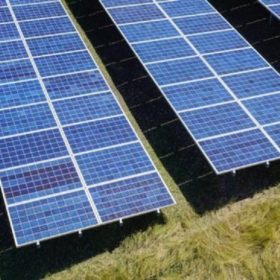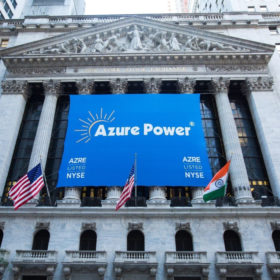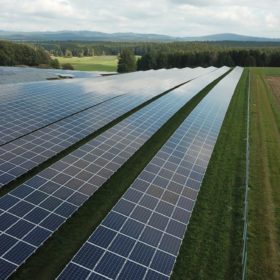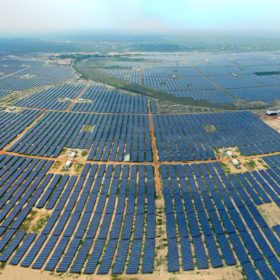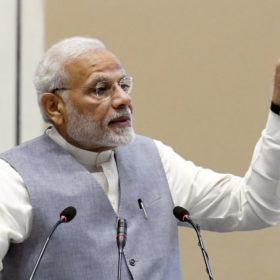Andhra Pradesh allocates 57% of energy budget to ‘free power for agriculture’ scheme
The overall energy outlay of Rs 6984.73 crore for the year 2020-21 is much lower than 2019-20’s revised estimate of Rs 11,639 crore.
Uttar Pradesh set for 2 GW ‘ultra-mega’ renewable energy park
The state cabinet has approved a 74:26 joint venture proposal by publicly-owned hydropower company THDC India and the Uttar Pradesh New and Renewable Energy Development Agency for the ambitious project.
Transmission charges waiver to renewables may be extended beyond 2022
Solar and wind projects commissioned beyond the year 2022—at least till mid of 2023—may be eligible for interstate transmission charges waiver on the electricity generated.
Azure Power Q4 revenues up 29%, but net loss at Rs 394 million
The New Delhi based developer posted a net loss of Rs 394 million (US$5.2 million) for the three-month period from January to March, mainly on account of higher charges amounting to Rs 551 million (US$ 7.3 million) that were partially offset by higher revenue.
Ministry moves to fend off predatory moves for Covid-weakened solar businesses
Foreign direct investment into Indian solar concerns from China and other neighboring countries will now have to secure the approval of the Ministry of New and Renewable Energy.
Adani Green Energy wins world’s largest solar award
The developer is reported to have exercised an option to double the 4 GW of solar generation capacity and 1 GW of cell and module production facilities it secured in the manufacturing-linked solar tender carried out by the Solar Energy Corporation of India in November.
The long read: New fuels, new powers
The energy transition will change the geopolitical landscape, which has hitherto observed closely who controls the production and trade of hydrocarbons. The current ambition to find alternative sources of power has given impetus to a growing academic community to determine the probable geopolitical outcome of the energy transition. Renewables do not mutually share most of the unique features of fossil fuels, which translate into power political effects. So how should we understand the world of tomorrow?
Modi calls for a rooftop-solar-powered city in every state
The prime minister again emphasized the need for India to develop a domestic solar manufacturing industry and also urged officials to get on with plans to make Ladakh carbon-neutral.
Rs 900-billion package not a solution to Discoms’ woes, but offers respite
For long-term stability, Discoms need to address operational issues like low billing and collection efficiency and high aggregate technical and commercial losses.
Germany to help India evaluate optimal power balancing with renewables
German development agency GIZ has hired DNV GL to study control reserve requirements of India’s southern states. The study—part of the Indo-German Energy Programme—will help ensure efficient and cost-effective integration of large-scale renewable energy supplies in the region.

